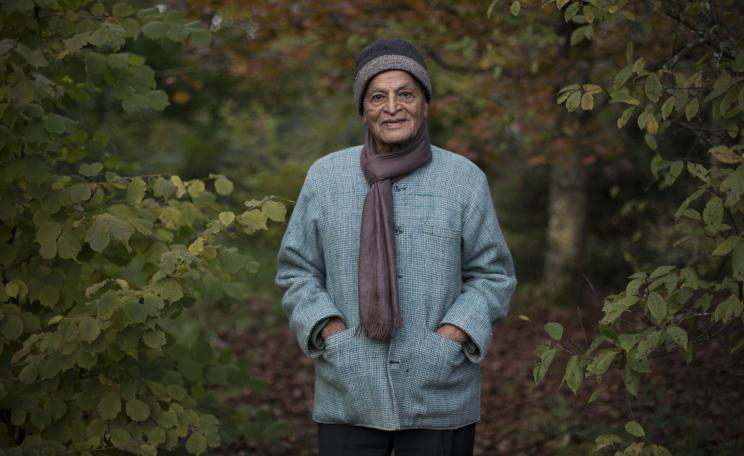The end is to live in dignity, in peace, without being discriminated against for the colour of your skin.
Francia Márquez serves alongside Colombia’s first ever left-wing president, Gustavo Petro, whose manifesto promises to bring much-needed reform to Colombia.
Yet Márquez has stepped into government - the very institution that has for so long excluded the communities she represents.
I’m curious to see how she will be received by congress and whether her activist spirit will shine through in her new position of power and influence.
Justice
Márquez is the daughter of miners. Her lineage is deeply rooted within Afro-Colombian artisanal gold mining in her ancestral town of La Tomba – which has long been threatened by multinational mining companies and land grabs.
Having become a single parent at 16 years old, Márquez became a miner herself to support her family. She was able to see with her own eyes that the very land she had lived, breathed, and worked on was being threatened by the encroachment of multinational corporations.
“We as a people came to have lands that were fought for by our ancestors. When I speak, it is from a place of justice, not just for black people but for Indigenous peoples, women, and nature itself", said Márquez in a documentary after winning the Goldman Environmental Prize in 2018.
She added: “I was just a mining woman and didn’t understand the legal language.”
Explosive
This is what led her to study the law and eventually become a human rights lawyer. She has long represented Afro-Colombian and Indigenous communities.
She put her law degree studies on hold when black holes began appearing in the red earth rich with gold and rare minerals.
Hordes of illegal miners employed by an international gold firm began infiltrating Márquez’s hometown. Márquez spearheaded a ten-day, 350-mile protest march to Bogotá. The marchers stayed in the capital for another 22 days, demanding the withdrawal of the mining company from La Tomba.
The government agreed and ordered the mining company to leave. When they refused to budge, government forces used explosives to remove the mining equipment.
Community
Since that day, Márquez has become a victim of a series of death threats – unable to return to her hometown without being escorted by security forces.
In response to the success, which led to her winning the Goldman Environmental Prize, she said: “This fight has not only been mine, but the entire community. I was the one that gave it a voice, and sometimes I have given it a face, but we have done all of together.”
Márquez's story is extraordinary, and her entry into a largely elite system is a big step for Colombia’s rural, marginalised populations, who have long battled governments for land rights.
Her political manifesto, which is translated as the The Nobodies, promises recognition for those who have been dispossessed and victims of Colombia’s long history of struggle.
The end is to live in dignity, in peace, without being discriminated against for the colour of your skin.
Isolation
The exclusion of rural farming communities from decision-making is perhaps what Colombian author, Gabriel García Márquez, eludes to in his novel One Hundred Years of Solitude.
Set in the isolated, spellbound town of Macondo, the novel portrays the generational trauma and isolation of a family that lives divided by a dense, impenetrable jungle.
In Maconda, the banana plantation is invaded by strange men from other lands, and the people are plagued by diseases and war with no ending and no purpose. Marquez eloquently wrote how “time was not passing… it was going in a circle”.
Divided
My question is whether Francia Márquez, alongside the newly elected president Gustavo Petro, will be able to break this spell.
Márquez and Petro are fighting for change in a divided country, torn by violence and division that has long been waged by corrupt politicians and the so-called war on drugs.
It appears that Petro, a former guerrilla fighter, was elected for his radical manifesto to fight the bitter inequality that plagues Colombia. He also promised wholesale land reform and to halt oil and gas exploration - although he has since backtracked on this policy.
Colombia is Latin America's largest coal producer. In 2021, mining made up 24 percent of the country's total exports and 2.3 percent of gross domestic produce, according to the mining and energy industry.
“In the areas where we can explore, let’s search for minerals for clean energy... Let’s search for minerals to fertilise the earth," Petro said during one mining conference.
Goal
Márquez has a lot of work on her hands. Communities such as the Embera Karambá Indigenous groups in Quinchía, have been resisting large-scale mining for over 15 years.
Artisanal gold mining is a method that involves panning for gold - which doesn't disrupt the landscape in the same way as industrial mining.
Artisanal miners of the Embera Karambá Indigenous community were no longer able to pan in the rivers since the waste products produced by industrial mining further upstream were causing their hands and feet to burn, according to a report in the environment website Mongabay.
Sadly, 60 percent of Colombia's tribes are at risk of extinction, according to Survival International. And many of these threats come from illegal mining activities and deforestation.
"I see the state as a means, not an end," said Marquez said during a campaign interview in her Bogotá office. "The end is to live in dignity, in peace, without being discriminated against for the colour of your skin. The end is that they don’t look at us as incapable because we are women. That’s the goal.”
This Author
Yasmin Dahnoun is the assistant editor of The Ecologist.







